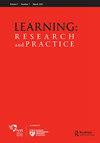Mindfulness for adulting
Q2 Social Sciences
引用次数: 4
Abstract
ABSTRACT This paper calls for ethical responsibility to manifest a holistic, embodied, and deeply relational vision of what it means to actualise fuller human flourishing than how we, humanity as a whole, are behaving currently. A thesis is presented that humanity is experiencing an arrest within the trajectory of species’ psychological development and that mindfulness cultivation can facilitate transformation. This thesis comes with a proviso that mindfulness needs to be taken up differently from the dominant discourse around it. A case is made that contemporary mindfulness is most often implicitly and explicitly fuelled by conventional “ordinary consciousness” whose primary function is survival supported by the fear-driven fight–flight–freeze neural assemblage. Suggestions are made that mindfulness be understood as a way of accessing non-ordinary consciousness that sees the world relationally in terms of expansive self-other integration. For this, further suggestions are made that mindfulness be placed back into a larger context, for example, practice-based Buddhist philosophy and psychology, that addresses existential suffering and proffers a comprehensive holistic educational programme. Such a programme cultivates human potential and supports relationally generous and generative human flourishing. As a concrete practice proposal for transitioning into a relational paradigm, inner work is proposed and illustrated with examples.成人的正念
本文呼吁伦理责任体现出一个整体的、具体化的、深刻的关系愿景,即实现更充分的人类繁荣意味着什么,而不是我们人类作为一个整体,目前的行为。本文提出人类正在经历物种心理发展轨迹的停滞,正念培养可以促进转变。这篇论文附带了一个条件,即正念需要与围绕它的主流话语不同。有一个案例表明,当代的正念通常是由传统的“普通意识”所推动的,而传统的“普通意识”的主要功能是生存,由恐惧驱动的“战斗-逃跑-冻结”神经组合所支持。有人建议将正念理解为一种获取非普通意识的方式,这种意识从广泛的自我与他人整合的角度看待世界。为此,进一步建议将正念放回到更大的背景中,例如,以实践为基础的佛教哲学和心理学,解决存在的痛苦,并提供全面的整体教育计划。这样的方案培养人的潜力,支持相对慷慨和繁衍的人类繁荣。作为过渡到关系范式的具体实践建议,提出了内部工作并举例说明。
本文章由计算机程序翻译,如有差异,请以英文原文为准。
求助全文
约1分钟内获得全文
求助全文

 求助内容:
求助内容: 应助结果提醒方式:
应助结果提醒方式:


